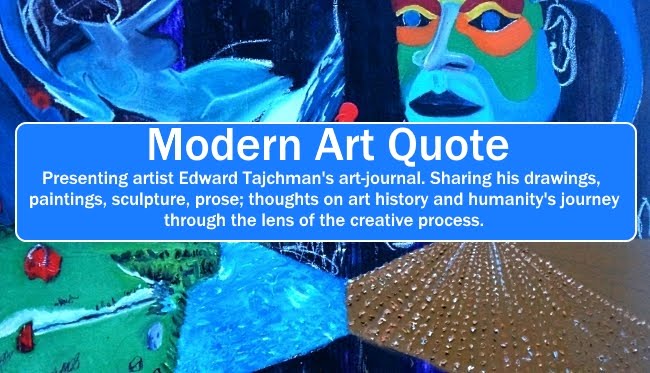What is Mr. Eliot trying to tell us in the following quote of his?
"The more perfect the artist, the more completely separate in him will be the man who suffers and the mind which creates; the more perfectly will the mind digest and transmute the passions which are its material."
-T.S. Eliot, from his essay: "Tradition and Individual Talent", 1922.
My opinion is that he speaks of suffering has a beneficial ingredient or fuel rather, for the creative mind; "...the passions which are its material." He is saying that the mind needs tension, struggle, needs conflict, and drama; the pursuit of one's ideals or vision through diffuculty. The Latin phrase "Ad Astra Per Aspera" (to the stars through difficulty) comes to mind. (it's the State of Kansas' motto).
Some would argue that having the time and money to do art creates a situation where masterpieces can be created, leaving the artist free from stress, worries, responsibilities, etc. But just because one may be comfortable, doesn't mean that one has to rid himself of the 'tension' in his/her life that can help with the creative process. Take for example comedian Andy Kauffman, who even when he 'hit it big', took a job at a deli-counter in an effort to keep it (his comedy) real, providing fuel for his art. In conclusion, I am not saying one needs to suffer to make good art; but it sure does make it a hell of a lot easier.
Some would argue that having the time and money to do art creates a situation where masterpieces can be created, leaving the artist free from stress, worries, responsibilities, etc. But just because one may be comfortable, doesn't mean that one has to rid himself of the 'tension' in his/her life that can help with the creative process. Take for example comedian Andy Kauffman, who even when he 'hit it big', took a job at a deli-counter in an effort to keep it (his comedy) real, providing fuel for his art. In conclusion, I am not saying one needs to suffer to make good art; but it sure does make it a hell of a lot easier.








No comments:
Post a Comment